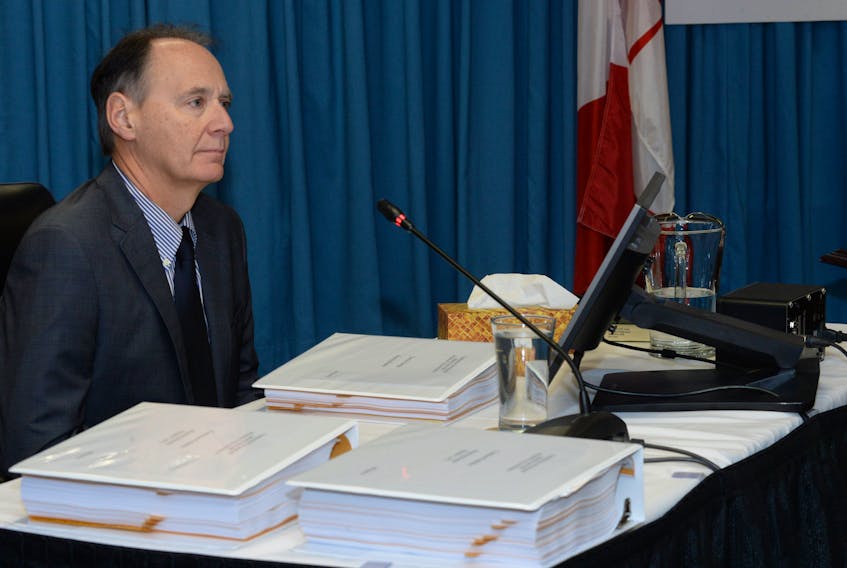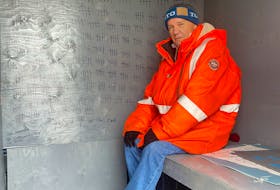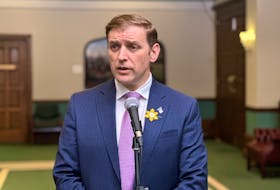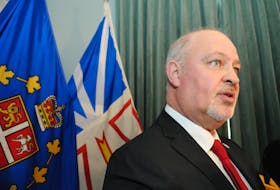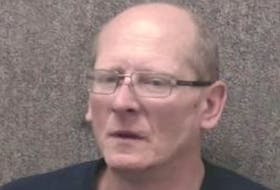Nalcor Energy chief financial officer (CFO) Derrick Sturge freely offered some new information before finishing on the stand at the Muskrat Falls Inquiry Thursday.
He spoke about two instances where he felt uncomfortable with a request as the hydroelectric megaproject progressed.
Sturge spent most of the morning in cross-examination, speaking about how risk was assessed by Nalcor Energy early on and handled in estimates, and how Nalcor approached accountability internally.
His own lawyer, David Buffett, then came forward and posed related questions, plus an unrelated one.
“I’m going to ask you a question now that was put to you by Grant Thornton. Essentially — I don’t know if I have it verbatim — but essentially it was this: was there ever a time that you were asked to do something that you didn’t want to do, or felt uncomfortable in doing? And what was your reaction when you were asked that?” Buffett said.
Sturge said he would repeat on the stand what he told Grant Thornton: there were two, clear occasions where he felt uncomfortable.
The first was in “2014, 2015, somewhere post-sanction,” when there was a discussion involving the Muskrat Falls project team and the suggestion was made that part of the capital cost for the Labrador Transmission Assets (including transmission lines between Muskrat Falls and Churchill Falls and related switchyards) should be pulled out and filed over in “the Gull Island envelope, which was, felt like very much a, not an active file for us and it just didn’t seem to make sense,” Sturge testified.
The change wasn’t pushed hard, he said. And he rejected the suggestion.
“The only other one, that came up on several occasions, was — somewhere it’s recounted in my notes, but — there was at a point through 2013 … the end of 2012, 2013, there was a strong suggestion to try and award the (project) financing to CIBC,” he said.
“And I don’t know exactly where this was coming from. I don’t believe it was Ed (Martin, now-former president and CEO). I believe it was probably the province, but again it’s one of those things you don’t exactly know where it was coming from. But I believe it was somewhere in the province, there was some strong suggestion if we could, award to CIBC.”
Asked what his reaction was, Sturge said he was a firm “no” in response.
“And it died. I never heard of it after that,” he said.
The project was ultimately supported by a syndicate of Canadian banks.
Meanwhile, cross-examination also drew into question just how much Sturge was, or was not, “out of the loop” on certain aspects of the project.
Harold Smith, representing Martin, introduced the idea that the extreme, high-risk “P1” schedule at the time of the project’s sanctioning — referenced more than once now, including in Grant Thornton’s report to the inquiry — is not actually a schedule used. Smith said there is supporting evidence to come, showing such a dire schedule wasn’t ever pursued.
The “P1” schedule was one of the pieces of information put to Sturge on his first day of testimony Wednesday, with the suggestion he was far out of the loop when it came to significant information about the project (given schedule overruns would affect cost estimates).
Sturge has testified he did not know some details about the project, including details related to cost estimates and around project risk, and accountability on that front rested with Lower Churchill Project lead Gilbert Bennett and the president and CEO. The corporation also has an internal auditor, reporting directly to Martin and the rest of the board of directors.
He said for the record the idea of more open discussion within Nalcor on several topics, including at the board of directors level, is something worth thinking about, as some information was kept close to the chest by those who were in the know.
“That’s just sort of fact, that (information) was kept very tight,” he said.
“That’s not to say that what was done was wrong.”
The lead estimator with SNC-Lavalin working on the Muskrat Falls project was called to the stand following Sturge. Appearing by Skype, Paul LeMay is expected to continue testimony Friday, followed by former minister of Natural Resources Shawn Skinner.
[email protected]
Twitter: @TeleFitz
RELATED STORIES:
Nalcor CFO says wasn’t aware of high-risk schedule
SERIES: The Muskrat Falls Inquiry

